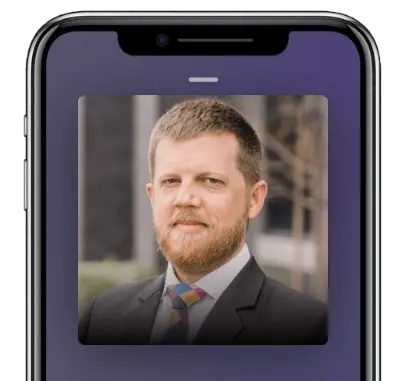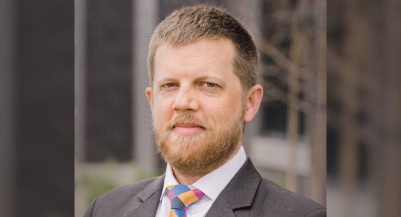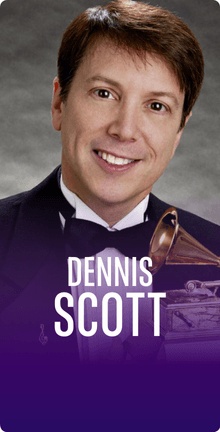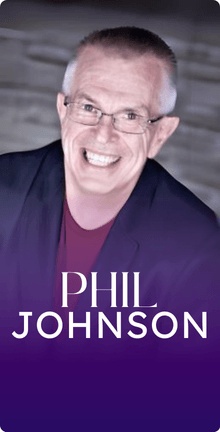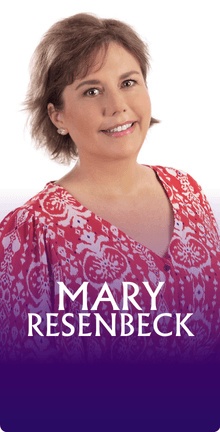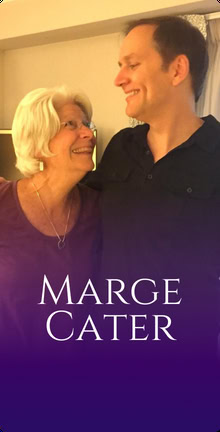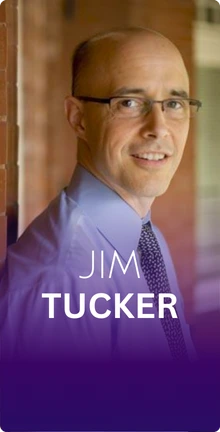In this Episode
- [03:06]Connor Boyack shares his origin story, which led him to start a foundation to help change the government.
- [06:06]Connor talks about homeschooling and reflects on his own education experience.
- [15:56]Connor and Stephan discuss the need for children to develop anti-fragile skills in a rapidly changing world.
- [24:21]Connor discusses the manipulation of public opinion through propaganda and media and the influence of powerful individuals and groups on society.
- [30:13]Connor envisions a future where informed youth can stand up for justice and democracy.
- [36:06]Stephan and Connor explain the value of eliminating fear and having faith in God’s plan.
- [48:32]Connor argues that parents should be more involved in their children’s education to counteract the ideas taught in school and have meaningful dinner discussions to foster critical thinking and situational awareness.
Connor, it’s so great to have you on the show.
Thanks for having me.
So, I’m a big fan of the Tuttle Twins. In fact, I have a handful of your books. For whoever’s listening, I’m holding some books up, including The Tuttle Twins Learn About The Law, The Tuttle Twins and The Search for Atlas, The Tuttle Twins and The Education Vacation, and The Tuttle Twins and the Leviathan Crisis. These are not just for kids. Adults learn amazing principles from them, too, because I personally benefit from reading them to my four-year-old. It is a good reminder that, for example, a law is only legal. It doesn’t mean it’s just. It doesn’t mean that it’s fair or that it’s appropriate. It just means that it’s legal. I’d love to hear your origin story of how you got down this track. How did you end up creating not just these books but also a whole foundation or institute to help change government?
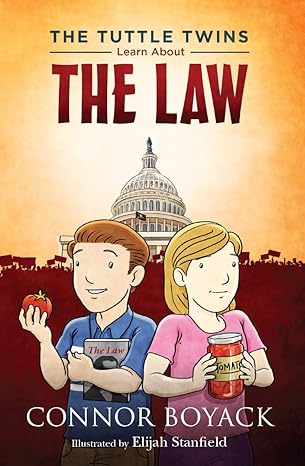
It started first with the Institute in 2011. I found myself volunteering with different organizations. I was helping different people get elected. I just found that I had a certain skill set and passion for trying to engage civically like that. But I couldn’t really find a home for myself. I didn’t find any other organization that really suited me or that I thought was effective. And so I decided, through a random turn of events, to start my own. I had no clue what to do. I was a web developer. That’s my background in online marketing and web development. So, the early days were quite adventurous and trying to figure that out. A few years into doing it, here I am, working with elected officials, changing laws, and having this influence.
My children, a few years into it, were five and three. So, I had a five-year-old boy, and he was almost six. Like any dad, I would come home at the end of the day and ask him, “How was your day? What did you do today?” They would tell me what toys they played with or who friends they played with. But when my boy was almost six, he started to reciprocate my question, “Dad, what did you do today? Where were you?” I found myself wanting to reply to him substantively, not in a superficial way. I didn’t wanna say, “I made phone calls today,” or “I had meetings.” I wanted to help him understand, “Dad was fighting eminent domain at the local city hall today because they’re trying to do this stupid project and steal these people’s property.”
Like any dad in my shoes, I turned to Amazon. This was in 2013, and I searched for children’s books that would teach concepts like property rights, free markets, or even personal development mindset and responsibility. Things came up short. There was nothing. There was a little stuff like the Constitution for kids, or certainly, there was religious stuff for kids. But for economic, civic, and historical principles, there was nothing.
I was talking with a buddy of mine, who’s a dad as well and very like-minded, and we were kicking around different ideas. We say, “Let’s do a kids’ book together.” There was no vision for what it would become and no master plan. It was just a fun little side project, but enough people bought the book and really liked the first one, The Tuttle Twins Learn About The Law, which motivated us to continue. We continued for a while until that snowball going down the hill just got much bigger and faster. Now we sold over 5 million copies. We got a cartoon, curriculum, and all kinds of stuff, but it all started with a dad who saw a need and had a desire to help his kids. And it all grew from there.
Just as you would never send your adult child off to some war without proper gear and knowledge, don't send your children into psychological battles unprepared. Share on XAmazing. Do you homeschool your kids?
We do.
Why do you do that? What’s the benefit, and what are the drawbacks?
I am a product of what I like to call “the public fool system.”
I haven’t heard of that before. That’s funny.
There was a growing up in Southern California, no less, in the ’80s and ’90s, back in the days when homeschooling was perceived as the weirdos that were isolated from society. That’s the stigma or perception there. I hated school. I did not enjoy it. I don’t feel like I learned very much. I learned way more on my own, just reading and pursuing personal passion projects. I did not enjoy school. I read a book when I was in college because I went to college because that’s just what you do. I was just on the conveyor belt of life when you were told, “To get a job, you need a college degree.”

I was at college and came across a book from a former government school teacher named John Taylor Gatto. He was a 30-year teacher in New York City, winning all these awards. He was at the peak of his career, and then he quit. He wrote an op-ed in the Wall Street Journal titled, I Quit, I Think, in which he goes on to say that he was going to embark on a search for a profession where he could help kids without also hurting them. His point was that try as he might within the system to inspire kids, to allow them to pursue their individual interests to foster their curiosity, they were being forced to adapt to a one-size-fits-all monolithic system where every kid has to learn the same thing at the same age in the same way as everybody else.
He ended up writing some books, one of which was called Dumbing Us Down: The Hidden Curriculum of Compulsory Education. In college, I read that book and was like, “Oh my gosh, this is listing all the reasons why I hated school.”
What we really need in education is a competitive landscape of entrepreneurial endeavors that have totally different micro-schools, private schools, and homeschools.
I was engaged at the time. I gave it to my fiance and said, “We ought to homeschool. We ought not to do this with our kids.” She went to public school as well. For me, it was a recognition that I wanted the best for my child. The government schools are as important as they are, perhaps as a social safety net for some kids who just need them because there’s nothing better. It’s like with college. Not every kid should go to college. Some should, and if they want to, great, but this expectation that everybody should go and everyone needs a college degree is ridiculous. It’s the same with going to public schools. They can fill a need.
The government can be there as a backstop. But I think what we really need in education is a competitive landscape of entrepreneurial endeavors that have totally different micro-schools, private schools, and homeschools and this kind of amazing landscape of choice and abundance rather than this monopolistic system that’s literally stuck in a century ago that we’re educating kids the same way. Think about AI. AI has the potential to disrupt education totally, and yet the teacher’s unions are already fighting its use. They see it as a way to undermine what they’ve been doing for decades. I just think there’s a better way, and I want the best for my child, and I don’t think the government schools will produce that. We made the choice to homeschool.
You asked I’ll wrap up with this stuff, and you asked for trade-offs. The positives are we can lean into my children’s interests and passions and get them to love learning because they have the freedom and the flexibility to learn what they’re curious about and explore life, which is what we all do. So why don’t we afford that to our children? There are huge positives to the flexibility and customized curriculum you can create. I would say traditionally, the drawbacks were the social side where people say, “Oh, your kids aren’t gonna be socialized.”
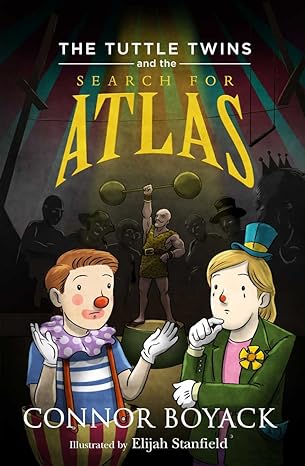
Well, number one, when you look at the socialization that’s happening in public schools, the bullying, drugs, vulgarity, and disrespect, that’s not really the socialization I want for my kids. Number two, I think an innovation in the past decade in homeschooling is homeschool co-ops. Our kids, for a decade, have been in a homeschool co-op. It’s like 20, 30, and 50 families all coming together to provide classes to one another’s kids, to have social events, and to have a mom group so all the moms can have a support system. You get the benefits of a more like a mini school, if you will, but the benefits of homeschooling as well. That cuts down the drawbacks historically associated with homeschooling.
Yeah, I have a whole episode with Mary Resenbeck where we go into the different kinds of curricula and options for homeschooling, the benefits, and so forth. You mentioned the subtitle of one of John’s books, The Hidden Curriculum of Compulsory Schooling. What is the hidden curriculum in a nutshell?
Well, it’s hiding in plain sight. That is the absolute mediocrity that we’ve tolerated. And to illustrate this, I’ll share a brief story. Very recently, a group of education activists and stakeholders formed a group. They went around the country in America for about 18 months, holding a bunch of listening sessions with teachers, parents, and students, and they reviewed the curriculum and textbooks. They’re trying to understand how things are going in America with education. At the conclusion of the 18-month survey listening tour, they produced a report. They titled it A Nation at Risk. In the report, they went on to warn that America’s educational foundations, I’m quoting from the report, “are being undermined by a rising tide of mediocrity.” And that if a foreign government, they said, had attempted to impose upon America the very mediocre educational performance that now exists today, we might have viewed it as an act of war as it stands, we’ve allowed it to happen to ourselves. Now, I told a little fib here that this report was not recent. This group did not recently meet and produce the report. That was over 40 years ago. During the Reagan administration, in April 1983, they put out this report.
When I tell this story to audiences, I typically will say at the end, raise your hands if you think education in America has substantially or measurably improved in the last 40 years. I’ve probably been in front of audiences that total about 10,000 people, plus the number of people I’ve asked this question to. There is not a single person for obvious selection bias. The audiences I’m speaking to already understand the point here. But it’s self-evident. Things have not gotten better. If anything, they’ve declined.
What happens to a society of mediocrity and ignorance is they don’t understand history, so they repeat it.
Look at the National Association for Economic Performance, which I think is their name. Every year, they evaluate public school kids—8th graders, 12th graders, and 4th graders. They produced something called The Nation’s Report Card, where they used all these standardized assessments to assess how things were going. About three or four months ago, they released an updated report on eighth graders because they measured each grade in different years. Only 13% of eighth-graders in America are proficient in American history. What happens to a society of mediocrity, ignorance, and people who become voters and don’t understand history, so they repeat it? People who can’t even tell you anything about the Holocaust or World War II or all kinds of atrocities the government has done because they’re never taught.
And so you asked what John was writing about when he said the hidden curriculum of compulsory education? What’s hidden is plain for all to see if you have eyes to see. If you’re willing to really realize that things have been dumbed down to a level that you’ve developed a tolerance for, you think, “Oh, well, I went to public school, and I turned out fine, so I’m going to send my kids.” We’ve accepted this total mediocrity. In fact, I wrote a book called Mediocrity, which just came out a few months ago. We talked about this report I mentioned, and in that book, I shared examples of eighth-grade quizzes from over a century ago. You can find these on the internet. Most adults today would probably score 15% on these eighth-grade exams.
The expectations that we used to have for our children and our society were so much higher. And so, as someone who’s trying to optimize myself, I often think through what I am missing out on in life because so little was expected of me when I was growing up.
We have to pay attention to education and not have the blinders on.
If I want my children to optimize their own lives, how can I help challenge them and give them an education that’s actually going to hold them to a high standard, excite them and help them excel? That’s a question that I think too few parents ask because it can lead to some uncomfortable answers. “Oh, I got to sacrifice here. I gotta be a part-time whatever so I can help my kids homeschool or send them to this micro-school,” or whatever. I think it’s worth it. I think that sacrifice where it’s necessary is worth it because I regret going to public school. I often reflect and wonder how much further ahead I could be with my mission. I had that boost in the early years and did not have to wait until after college to find that path. It’s not hidden. It’s available for all to see. We just have to pay attention to it, not have the blinders on.
What I get about this is you mentioned how much farther you could be if you had gone to a better set of schools. I think it was essential to your mission that you went to those crappy schools.
Perhaps so. It does give me a story to share, right?
Well, it gave you that life experience that gave you the motivation to turn things around for others so that they didn’t have that mediocrity in their education when they grew up.
That’s a great point. I appreciate that.
There’s a great Wayne Gretzky quote, “Skate to where the puck is going, not where it as been.” It occurs to me that where we’re at with public education now is skating to where the puck was a hundred years ago.
Most parents feel extremely inadequate in their own understanding of current events.
I agree with you. I often say that we’re preparing our children. We’re training them for an economy that no longer exists. There are some data points about this. Two-thirds of the jobs that today’s K-12 students will have in the future do not currently exist. And so, how are we preparing our kids for that? What emotional resilience, technological competence, critical thinking, and adaptive and flexible skills are we giving them? I think it’s like 90% of kids homeschooling has had this massive surge in the past couple of years. I think 90% of America’s youth go to the public schools. But I think the number of homeschoolers is just going to keep going up because the word has gotten out. You’re no longer weird. If anything, homeschooled kids can look an adult in the eyes and carry on a decent conversation. Things have totally flipped, and I think the toothpaste is out of the tube and will keep growing.
For sure, if you’re going to skate to where the puck will be, you need to do something different as a parent of a young child. I don’t want him to learn just the rote 1950s-type curriculum. It just doesn’t arm him with the skills he will need for a world with AI and so much advancement that it boggles the mind. We need to teach our kids to be anti-fragile, not just resilient. And that won’t happen in the public school system, at least not anytime soon.
Well, Stephan, one of the big challenges I come across relating to what you just said is that you’re a parent here who has the awareness sufficient to make those choices on behalf of your child, put him on a good path, and prepare for their future.
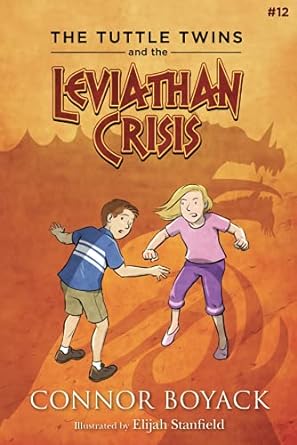
In my experience, most parents feel extremely inadequate in understanding current events. World trends, technological progress, and future developments are on the horizon. Even like with our The Tuttle Twins books, the core problem they solve is that many parents who buy our books already believe these concepts.
They believe in the ideas of human flourishing about what a prosperous society looks like, that you need a strong currency that corrupt politicians can’t debase, that you need a system of private property to incentivize people to apply themselves, that you need a society of people who are personally responsible and not, you know, living at the largesse of the government and so on and so on. Many of these parents who get our books believe in these concepts, but they feel completely inadequate in articulating them to anyone else, let alone, or I should say, especially their children, because they can’t engage in a Facebook comment with another adult about these ideas, let alone figure out how to simplify them and make them interesting to a six-year-old, and so they don’t.
They get shocked 15 years later when their kid is now an adult, and they turn into someone who has radically different political views than they do or believes in harmful ideas that are detrimental to society. The parents often throw their hands up, “What happened? Where did my child go astray?” Then I’ll ask, “Well, tell me what your dinner table conversations were like. Help me understand how you talked to your kids about these ideas.” “Oh, well, I figured when they were a voter, when they were an adult.” I thought, “No, by then, it’s too late. They’ve been exposed to TikTok, YouTube, textbooks, peers, and everything else.”
It’s the intentionality you have with your child that I think all of us as parents need to say. Despite my inadequacies and insecurities about my knowledge and understanding, I need to red-pill myself and pay attention to what’s happening. If nothing else, I want to give my children the best possible future. I owe them to be awake and alert to what’s happening. That’s again uncomfortable for many parents, but that’s my call to action. You really need to wake up and realize what the stakes are.
That’s a funny use of the red pill analogy. So you’re a fan of The Matrix, I guess.
Second to scripture, I would say that The Matrix is the best story about our society. I should say the original, not any of the sequels, of course, but I think there are powerful metaphors in there that we definitely draw from.
Do you know that, apparently, and I believe this to be true, The Matrix was a channeled work not from the Wachowski brothers but from Sophia Stewart? Did you hear about this?
No.
I heard about it from M.E.T.A.L Saturday. So M.E.T.A.L is the mastermind I’m in, and it’s run by Ken Rutkowski. Sophia was one of the speakers one time. That’s where I heard about the whole story. She submitted the movie script as an entry in a science fiction writing contest in the eighties. She didn’t hear anything. And, a decade-plus years later, she goes to the movie and recognizes, “Wait a minute, that’s my script.” So she waged a legal battle, and of course, the powers that be were way too powerful. She was not able to get a fair shake, but yeah, she wrote the first one, and you can tell the difference between the first one and all the sequels. They just don’t hold a candle to the first one.
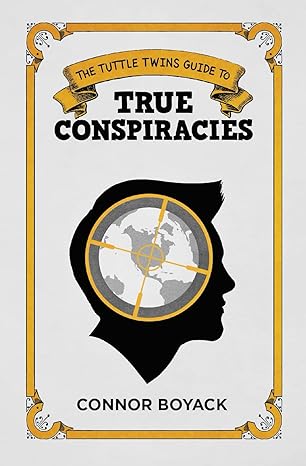
I’ll tell you, Stephan, one of my favorite scenes in the first one that I think is very relevant to our society is the scene with the woman in the red dress. This is before Morpheus takes Neo into the actual matrix once he’s been liberated from it. They’re in this simulated environment.
To explain what The Matrix is, Neo is walking down the street. He bumps into all these people, and Morpheus says, “Look at these people now.” These people represent the minds of the very people that you’re trying to liberate, that we’re trying to liberate from The Matrix. But they are so hopelessly dependent, so inured—that was a new word for me that I had to look up after watching The Matrix. It just means, like a leech, you depend on this thing you’re attached to. They’re so hopelessly injured by the system that they will fight you as you try to liberate them from it. I saw that as a 16 or 18 years old. It didn’t stick with me at the time, but ever since, I’ve thought about that quote over and over again because, in my line of work, I often find that here I am promoting these ideas that I believe in free markets and personal responsibility and so forth. There are people who don’t agree with those things: those who want entitlement, those who want redistribution of wealth, those who want guaranteed rights to housing and healthcare, and everything else.
I know that my ideas will lead to the best human flourishing, the best self-confidence, and the highest prosperity. But the very people who these ideas would benefit often are the ones who are fighting against it. So, it’s a fascinating trend to see as you try to liberate people from ignorance. It’s like, “How dare you tell me I’m not as smart as you. Don’t tell me to read that book.” Again and again, you encounter people who throw up those barriers and attack you. Even though what you’re offering them can be very empowering, there’s a high level of resistance. And so I reflect on that quote often because, in my line of work, I just see it over and over again.
But you also have this situation where they’re being manipulated by mainstream media, being told what to think. And so, the powers that be decide to target you. Unfortunately, I know there was a whole thing with CNN that made you look like a bad guy, and people aren’t thinking for themselves. They’re just taking what is told to them, programmed into them by Crisis News Network and wherever else, and then they’re on the warpath and think that you are doing damage to society when they have never even picked up any of your books. I find it shocking. I have had staff who thought poorly of you and your principles without ever having read any of your children’s books. That just blew my mind.

We are prone to judgment as people. We do judge books by cover by cover. I think it’s part of how the human brain works trying to conserve energy. It’s always looking for social cues from others about conclusions to make without having to expend the energy necessary to do that on your own, which is why I find the work of Edward Bernays so fascinating. I encourage everybody, all your listeners, to buy his book Propaganda. It was written over a century ago. It’s a short but very eye-opening book. Edward Bernays was the double nephew of Sigmund Freud—by birth and by marriage. He was learning from his Uncle Freud how the mind works, how people think, and how the brain operates. He also worked for Woodrow Wilson in the Committee for Public Information, which was the propaganda arm of the federal government designed to induce Americans to support World War I. His job was to find ways to manipulate people, to encourage them to buy war bonds or support the war, and so forth. Today, Bernays is called the ‘Father of Public Opinion and Propaganda’ because the two terms are basically the same. He’s most known in the corporate world.
For example, in the 1910s, I think cigarette smoking was not fashionable for women, and the cigarette companies wanted to double their total addressable market to add women in addition to men. They hire Bernays. He hires these models to dress up as the Statue of Liberty. They held cigarettes in the air as they walked down the city, and they called them torches of freedom. It was right, as you have this whole women’s liberation movement. So, it aligned the perception of women smoking as a sign of liberation, which many women were really into at the time. Here’s this quote from the book. This gets to you talking about your staff making judgments about my work without reading it or just how all our ideas and opinions are so easily affected by these influences from others.
He says, “The conscious and intelligent manipulation of the organized habits and opinions of the masses is an important element in a democratic society. Those who manipulate this unseen mechanism of society constitute an invisible government, which is the true ruling power of our country. We are governed, our minds are molded, our tastes are formed, and our ideas are suggested largely by men we have never heard of. This is a logical result of the way in which our democratic society is organized. Vast numbers of human beings must cooperate in this manner if they’re to live together as a smoothly functioning society in almost every act of our daily lives. Whether in the sphere of politics or business, in our social conduct or our ethical thinking, we are dominated by the relatively small number of persons who understand the mental processes and social patterns of the masses. It is they who pull the wires which control the public mind.”
That was written over a century ago before we had these little propaganda surveillance devices in our pockets, just social media and everything, conditioning people to think a certain way. If that was true back then, of those in power who can manipulate people’s habits, opinions, and actions, what does it look like today? What will it look like with AI, deepfakes, and everything else in the future?
It's the intentionality you have with your child that all of us as parents need to red-pill and pay attention to despite our inadequacies in knowledge and understanding. Share on XIf we want to understand truth and things as they really are, not as they are claimed to be, I think we have some serious introspection to do about our goal ability. The impressionability of your staff to make conclusions that I think are false about our work because they didn’t know. The judgments that I make about what’s happening to Israel and Hamas because I’m operating off of headlines that are heavily influenced by people who have a desire to shape the narrative of this conflict. How do we know what is true? How do we win in a mind war? Where everywhere around us, the truth is under siege. That is a big question that we don’t confront as much as we should. We just kind of go along with our daily lives, perhaps not realizing, as Bernays said, how controlled we actually are.
That reminds me of a quote from Neville Goddard, and I just love this quote. It’s so powerful. “There is a great difference between resisting evil and renouncing it. When you resist evil, you give it your attention, and you continue to make it real. When you renounce evil, you take your attention away from it and give your attention to what you want. Now is the time to control your imagination and give your energy to what you want.”
Sometimes, I think we need to stand up in a sit-down world where people are passive.
I think this relates to what we’re talking about because if you see a war for our attention, a war for us to feed them whoever is fear, then we perpetuate it. But if we see that in every word uttered or headline that we read, the hand of God is behind it, ultimately, because we all work for God, even the dark side works for God, even if they don’t admit it, then you just relax and trust that everything is divinely guided and orchestrated. Things are happening for our highest and best good, even if it’s just for our spiritual refinement, even though we have to go through what seems like hell to get there. What are your thoughts on that?
It reminded me of a quote I was just pulling up from Thomas Jefferson. I’m told he didn’t actually say this, but it’s a famous quote. “In matters of style, swim with the current. In matters of principle, stand like a rock.” Just to your point about going with the flow, not resisting it, and letting these things happen and move through you. It’s just kind of interesting to me to give you this example. Sometimes, I think we need to stand up in a sit-down world where people are passive. You’ve seen perhaps that photo of a bunch of Nazi or Germans doing the Nazi salute. There’s this one guy standing there with his arms folded and not doing it. That circulates the internet. It’s actually a fascinating story about who that guy is. He was married to a Jewish woman who was being persecuted, and he was feeling very disgruntled about that fact.
I’ve seen them.
His wife was sent off to a camp, and he was sent off to a camp. As with many of those circumstances, it is a fascinating story. But I think we all imagine that we would be like that guy. “Oh, if I were in those circumstances, I would resist.” When human history tells otherwise, you look at the Stanley Milgram experiment, the famous psychological experiment showing that over two-thirds of people will potentially kill somebody else simply because they are instructed to do so by a person of authority. Stanley Milgram created this experiment after he watched the Nazis on trial at Nuremberg and afterward, citing as their defense, “I was just following orders. I was just doing what somebody else told me to.” He was at Yale, and he’s like, “This is curious. To what degree are people willing to go to commit atrocities simply because they were given orders to do so?”
He created this experiment. It was this whole electroshock experiment where the electricity would progressively get harder, and someone instructed individuals in a lab coat. That was their authority figure, just a guy in a lab coat with a clipboard. They were told to administer more shocks progressively. The person in the other room is screaming bloody murder by the end, “Let me out of here, let me out of here.” And the guy in the lab coat, “Nope, please continue. It’s very important that we continue this experiment.” Two-thirds of people went all the way to the end and administered the potentially fatal dose. I don’t think most of us would be like the guy folding our arms. I think most of us are the people who go along with what everybody else is doing. Under a combined set of pressures—political, economic, and social—most of us will do what we’re told and go along with things. For me, it’s a question of what I can do now: stand up when the time is right.
We had an event happen just a few months ago with this 12-year-old boy, Jaiden, in Colorado. His story went mega-viral. I think it’s got like 50 million views across social media now. He was kicked out of school for having a Gadsden flag patch on his backpack in Colorado Springs School. For those who don’t know, the Gadsden flag is that yellow ‘Don’t Tread On Me.’ It was kind of an anti-British flag. The rattlesnake symbolized the 13 colonies joining together.
Jaiden was a very patriotic kid, and he had this patch on his backpack. The teacher claimed that the flag has origins in slavery and was a disruption to the classroom environment, and kicked Jaiden out, saying he can’t come back if he doesn’t get rid of it. Jaiden decided to stand up for himself. He said, “Nope, that’s nonsense. I know my history. That’s not true at all. It had nothing to do with slavery. It was just a revolutionary era anti-British flag.” He got mom involved.
To her credit, Mom secretly recorded the conversation with the vice principal as she was saying all this ridiculous stuff, shared that video with me, and I posted it on Twitter. It went crazy viral. Libs of TikTok, and everybody started sharing it around. But the point that I bring this up is that here’s this 12-year-old kid who stood up. He had actually been reading The Tuttle Twins for about three or four years. He knew American history. He knew about free speech. And what would the world look like with a million more Jaidens? With kids who are informed about who they are, how the world works, what their rights are, and what the dangers to those rights are. What would the world look like if we invested like this as parents and teachers? In our young people, I think we would find far more people who are prepared to stand up when the time is right when circumstances present an opportunity. Like Jefferson said, “Stand like a rock in matters of principle.”
If parents and teachers invest in educating themselves and their children about how the world works and what their rights are, we are far more likely to be prepared to speak up when circumstances present an opportunity.
I’m more of an optimist. I think there’s a lot of upside for the future through innovation and all kinds of things. However, a large part of me is afraid for the future if 13% of eighth graders are proficient in American history. If we continue to produce this mediocrity, I worry about the aggregate impact of a distracted citizenry that is apathetic civically and doesn’t care about holding people accountable. Look right now at our political institutions. Everyone’s getting away with literal murder and pedophilia and Epstein’s client list and everything else. Our system and our institutions have degraded, and it’s a byproduct of our societal breakdown and people’s apathy.
I guess to wrap this rambling up, my point is that I think we need to be far more intentional about investing in the rising generation, making a million more Jaidens and instilling them with this knowledge so that when the timing is right for them, they can stand up and be an influence for good on many other people.
That makes sense. You mentioned you have a lot of fear for the future, too, but also optimism. It reminds me of a quote I read in one of Florence Scovel Shinn’s books. It’s called The Game of Life and How to Play It. It’s from 100 years ago; it’s a great book. She says, “Fear is inverse faith.”
I think it’s really important to work hard to eliminate our fear because it is inverse faith. It’s the opposite of faith that everything is in our highest good, that we are being guided, supported, and loved from above by the Creator, and that this is all for our spiritual refinement.
I think, Stephan, one of the better ways I found to do that is to use language from our friends Dan Sullivan and Ben Hardy, which is kind of the gap and the gain. The gap is fear-based. Am I good enough? Am I doing enough? Am I further enough?” The gain, by contrast, is looking backward at yourself. I have only recently really been going deep into this concept of the gap and the gain. To bolster your point about having that reliance upon our creator and having that faith, I have seen a huge boost in my confidence and faith by looking backward and seeing my progress. It’s that corny poem, like, “Oh, like I looked back, and there was only one set of footprints,” and then Christ is like, “Well, it’s then that I carried you.” The guy thought he had been abandoned, and that’s why the second set of footsteps wasn’t near him.
We are instruments in God’s hands for one another.
But the point is that when you look backward, I think I can see God’s hand in my life. It’s harder for me to see it moving forward and necessarily in the present. But when I look backward, I’m like, “Oh my gosh, all these things have worked out for my good. Even the challenges, even the trials, I’m being refined.” I’m being shaped and molded into the instrument God wants me to be. And so when I look backward, I start to be like, “Oh, it’s happening, right? Yay.” That gives me more faith and confidence to move forward.
Yeah. Do you get insight or downloads from above for any of your books?
My mom, I would say, is a conduit for revelation. She has a gift that I do not. She’ll go on prayer walks and come off of one of her walks, and she’s like, “Oh, here’s the message for the day. I’m supposed to tell you this,” and off I go. How it works for me, how it’s worked in my life, is that doors open, paths unfold before me. I have found that certain people are in my life at the right time, or this opportunity arises that I could never have foreseen or concocted myself, and it becomes very clear to me, “Ah, that’s the path to go. Ah, okay, here’s who I need to work with.” That’s how I kind of get my revelation through paths and people rather than any direct messages for myself.
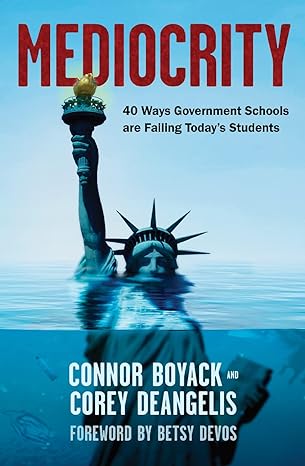
But to answer your question, it works that way with the books. Someone will suggest a resource, a book, a YouTube video, or something that is precisely what I need to put into this story that I’m working on over here. And so I find that when I’m open to that guidance, those little situations kind of unfold. I start to recognize, “Oh, okay, this must be for me to use at this time in the story, or this is the message I need to write a book about right now because this is what children need to be learning about talking about.” So I think it looks different for everyone. For me, it’s more just being sensitive to those external things because I think, in my estimation, it’s very rare and seldom that God will miraculously intervene in someone’s life through angelic intervention or what you have. I think more often, we are instruments in God’s hands for one another, and so the people in my life who can open those doors or like this is the ultimate who, not how, to use another Dan Sullivan term. The who’s in my life that God can put in the path and say, “Connor, if you try and think how you’re going to do it, you’re just going to kick against the bricks and go slow and not achieve what you need to be. Here’s who you need to connect with. And I’m going to put them in your path, and then you’re going to go 10x.” That’s how it tends to operate for me.
Amazing. So, your latest book is The Tuttle Twins Guide to True Conspiracies. How did that come about? There must’ve been some sort of divine orchestration or synchronicity that helped bring that to fruition. Tell me a bit more about that and why that topic and not something else.
My religious background is that I am a member of The Church of Jesus Christ of Latter-Day Saints, known as the Mormons. Some are familiar with The Book of Mormon because of the Broadway musical, but it’s a book of scripture about Christ’s visit to this continent. In that book, there is a group of people called Secret Combinations. They’re basically a conspiratorial group of people who acquire political power through deceit, and then they use that power to oppress everyone else who disagrees with their agenda. They murder and commit whoredoms and all kinds of things and get away with it because their buddies are in positions of power.

Its subtitle is Another Testament of Jesus Christ, a message about Christ. It’s also a warning manual about what these conspiratorial elements in society, these evil people, can do. And this society, they’re called the Nephites in this book, completely implode because they’re just infested with these secret combinations. So, all growing up, I’ve read this book, and I think it’s kind of a warning manual for our society today. I try to extract from it the lessons that I need to learn. And so, when I look around our society and see so much corruption and conspiracy, I worry that the same thing that the book describes can play out in our day. I don’t want that to happen.
I don’t want our society to implode and deteriorate and just become corrupt to the core. So, for years, I have followed a kind of conspiracy. Theories, if you want to call them. I never really followed Alex Jones too much, but I just kind of liked that world, the Bilderberg groups, the Trilateral Commission, and all these people. I kind of had my finger on that pulse for a while. And now here I am doing these Tuttle Twins books, and I think realizing that there are evil people doing evil things is such a critical way to understand truth better, to realize that truth is under siege, that there are people actively trying to deceive you.
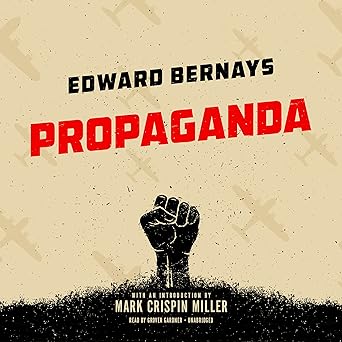
What better way to teach our young people critical thinking than to give them, not conspiracy theories but conspiracy facts? So, in our book, when I decided to write this, I said, “I only want to include conspiracies that are fully documented.” For example, I think JFK was assassinated by the intelligence community. I think the evidence for that is very strong. Is there a document that I can point to, something that is conclusively demonstrated that? No, so I didn’t include that in the book, even though I have my strong assumptions.
I’ll share a very brief one. This is during the Cuban Missile Crisis. The commies are in Cuba setting up shop, missiles, soldiers and everything. There was this fringe group of activists in America that thought we should go to war. We should initiate military conflict in Cuba to stop the communists. Why do I say that they were this fringe radical group? At the time, polling very clearly showed that Americans did not want to go to war in Cuba. They didn’t want to trigger World War III. But this group did. So, this group came up with a plan. They said, “What if we shot a bunch of people in Miami, and we shot down a plane, or they bombed people in Miami.” That’s what it was. It was a bomb. They shot down a plane, and they shot a bunch of people on rafts fleeing Cuba in the search for freedom here in America. “We’ll kill all these people, but we’ll make it look like the Cubans did it.”
This is what’s called a false flag event, of course, stemming from the days of piracy when the pirates would put up a false flag to make you think, “Oh, it’s another American ship,” and you get close, and they attack you and board you. This act of deception is designed to manipulate how people think and act. This fringe group of radical activists created this plan, and they somehow got an audience with the president of the United States, who at the time was JFK. JFK reviewed this plan and said, “No, we’re not doing that.” He rejected the plan outright. Now, the reveal here is that this fringe group of radical activists that I’m referring to was actually the Joint Chiefs of Staff of the United States Military, the top brass of the Department of Defense, who, mind you, have sworn an oath to uphold the Constitution and protect American lives, literally proposed in a formal document that’s been declassified. You can read it yourself. It’s called Operation Northwoods. They proposed killing a bunch of Americans, making it look like Cubans did it so that Americans would get angry and demand we go to war and send more Americans to die in this war against Cuba.
We have to wear psychological armor and have weapons and knowledge of the enemy if we’re gonna win.
As I share in one of the 20 examples in the book, the point is not just to point fingers or say evil or whatever. It’s to say, “Let’s be on guard for what’s happening today.” It could be related to the deal in Ukraine. It could be with Israel. It could be our economy. It could be manipulating job reports to try and make Bidenomics look good. Pick your issue. The point is we are in a mind war, and we will lose every battle we don’t know is even being fought. If we don’t realize we are in a mind war, we’ve already become a casualty. You have to have defenses. You have to have weaponry. You have to have knowledge of the enemy if you’re going to win in the mind war. You know, the people who The Matrix most controlled were those who didn’t know it existed, which was almost everybody. The point is we have to red-pill ourselves. We have to wear that psychological armor and have weapons and knowledge of the enemy if we’re going to win.
The point of this book with these 20 examples is to look at all these past examples but let them serve as evidence for you to realize that, “Oh my gosh, I need to be far more of a critical thinker and media skeptic today,” assuming that we’re just constantly being lied to by those who want to push an agenda.
My equivalent to that is defensive driving on the freeway. I take a stance of defensive driving when I get in my car because I’m not going to assume that everybody is completely sober and a hundred percent responsible and paying attention. Just the other day, I saw somebody swerving back and forth across lanes, and I passed them. He’s got his phone fully in front of his face. Like, “This, this older guy who, I guess, needed to have it right, two feet ahead of him and straight in front of his face.” It is just that it blew my mind. Like, that’s crazy. So if you show up in a defensive stance to make sure that you’re going to stay safe on the road, if you take that same sort of defensive stance when you consume media or you participate in conversations with people who are just reciting stuff from the media without having fact-checked anything or if you’re being manipulated to vote in a particular way, whether it be through advertisements or what have you. You need to have that defensive stance. That’s what I take from what you were saying.
If our country is to be saved, it’s having family dinner table discussions about real-world issues and fostering critical thinking in our kids.
I think that’s prudent, and because you’re right, you never know the circumstances other people are in, their intoxication, their awareness. And the same is true of our society. And again, you go back to our earlier conversation about the public schools. Are those students being equipped with this knowledge, self-awareness, and awareness of their external environment and the world around them? Or are they being put these little woke goggles on, like this lens through which they look at everything in our society, and it’s all manipulated? I think again, the answer is self-evident. So, this all boils down to me as a dad. I want what’s best for my kids. I feel like I’m in a position where I can help serve other parents with resources to help them help their kids.
And for me, Stephan, it all boils down to this: I don’t think we will save our country at the Capitol. I don’t think we’ll save our country in the courtroom suing the government. I think if our country is to be saved, it’s at the family dinner table. It’s having dinner table discussions about real-world issues. It’s fostering critical thinking in our kids. It’s helping them understand our ideas. It’s us learning about our beliefs.
And as I said before, situational awareness.
Correct. Even if you just look at the number of families having dinner, it’s just totally declined, let alone having meaningful dinner discussions or other discussions as a family. I think that’s where we need to optimize for at a societal level, is at the family level, and empowering parents to take more initiative, whether they’re going to homeschool or private school or even public school, but be more involved be more aware of what your children are learning, give them a counter-agent.
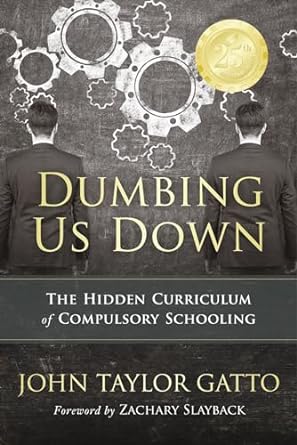
Half of the families who read Tuttle Twins, about 52%, send their kids to a school, and most are in public schools. However, those parents realize that their kids are not only not learning these ideas in school but are often taught quite the opposite ideas. And so for them, the Tuttle Twins become a counter agent in the home to say, “All right, yeah, your head was filled with that nonsense. Let’s read this story together and talk about it while you’re here with me.”
It’s like an antidote.
Exactly. Whatever your situation, my final call to action here, Stephan, my plea to your audience and myself, is just a higher level of intentionality. Be aware that we’re in a mind war. Be aware that your children’s minds are ground zero in the conflict. And just as you would never send your adult child off to some war in the Middle East without body armor and a weapon and rules of engagement and knowledge of the enemy, don’t send your children out into the psychological battles of today without armor, weaponry and knowledge. Let’s give them that at a minimum. It requires that we be awake, aware, and engaged, but it’s a cause that’s worth it, and it’s how we can restore the strength of our society.
Amazing. Well, thank you for everything you do in the world for our children and all of us. The book series is The Tuttle Twins. Your website is tuttletwins.com, and also your Libertas organization. What is the website for that?
We are in a mind war, and we will lose every battle we don't know is even being fought. So, you have to have knowledge of the enemy if you're gonna win in the mind war. Share on XIf somebody wants to follow you, listen to you, and learn from you, where should they go? What’s the best spot?
X, I’m @cboyack there. That’s where I spend most of my time—a platform that actually stands for free speech. So, I’m investing more of my time and attention there. But I’m all over social media and very easy to find. My website is connorboyack.com, where you can learn more about me and my work.
Awesome. Thank you so much, Connor. And thank you, listener. Thank you for being open-minded to changing the world and making a difference. We’ll catch you on the next episode. I’m your host, Stefan Spencer, and I’m signing off.
Important Links
Connect with Connor Boyack
Books
Business/Organization
Film
People
Previous Get Yourself Optimized Episode

